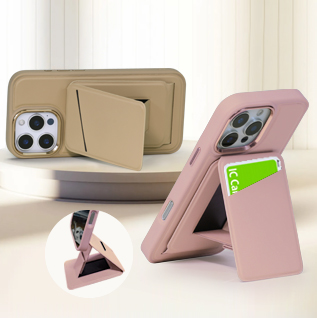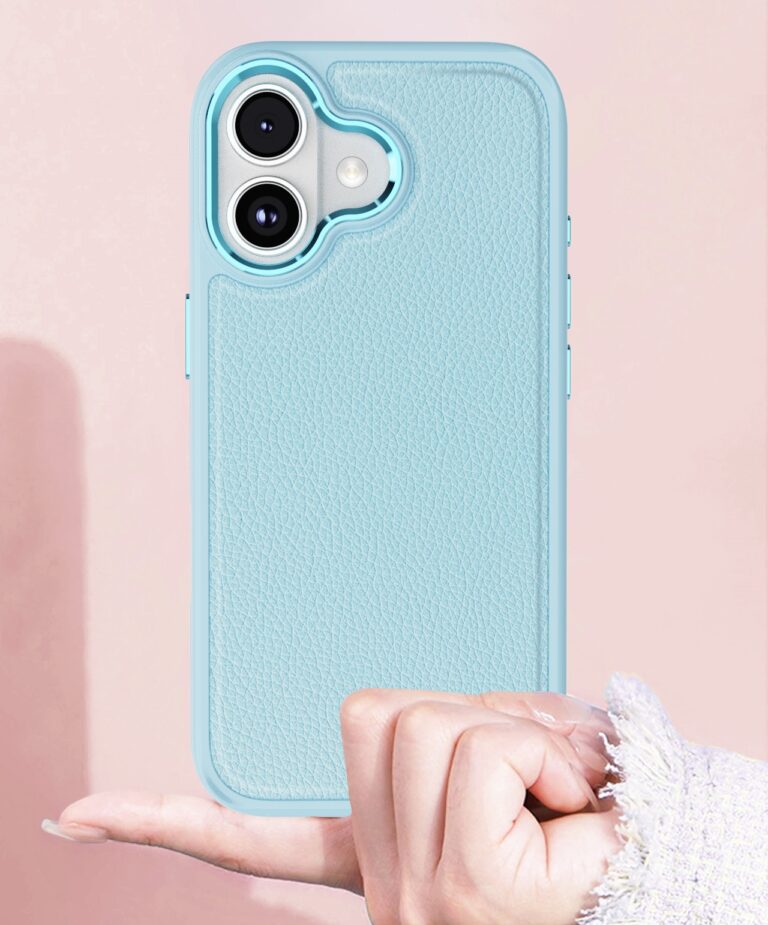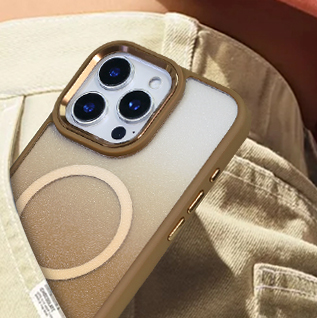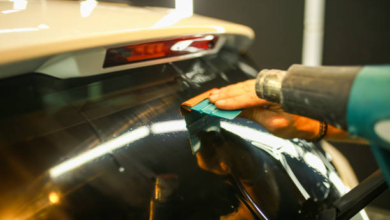Where to Find High-Quality Materials in Bulk Covers?

Retailers face a constant tightrope walk when sourcing phone cases in bulk—compromise on quality, and customer complaints flood in; overspend on premium materials, and profit margins evaporate. This delicate balance becomes even more challenging as consumers increasingly demand accessories that protect their devices while reflecting personal style. The mobile accessories market continues expanding rapidly, with phone covers representing a significant revenue stream for retailers who can deliver both durability and aesthetic appeal.
The core challenge lies in identifying suppliers who genuinely offer premium materials at competitive bulk pricing, not just marketing claims. Many retailers discover too late that their “high-quality” bulk orders contain substandard materials that crack within weeks or lose their finish after minimal use. This article explores proven strategies for sourcing reliable OEM partners who provide authentic material quality, extensive customization options, and transparent pricing structures. You’ll learn how to evaluate suppliers effectively, understand which materials truly deliver long-term value, and build partnerships that support sustainable business growth in the competitive phone accessories market.
Why Material Quality Dictates Success in Bulk Phone Cases
Material quality directly determines how long a phone case remains functional, which in turn shapes every customer’s perception of your retail brand. A case that cracks after two weeks or yellows within a month generates negative reviews that spread rapidly through social media and e-commerce platforms, damaging reputation far beyond the cost of a single refund. Retailers consistently report that material-related returns account for up to 30% of their product complaints, creating a cascading effect on profitability through processing costs, lost inventory, and customer acquisition expenses needed to replace churned buyers.
The connection between premium materials and competitive pricing might seem counterintuitive, but retailers who invest in superior bulk materials actually strengthen their market position. High-quality cases justify premium retail pricing while maintaining lower return rates, creating healthier margins than cheap alternatives sold at discount prices with frequent replacements. Customers increasingly research material specifications before purchasing, comparing TPU flexibility ratings and polycarbonate impact resistance across brands. When your bulk inventory features genuinely superior materials, you can confidently market durability as a key differentiator, attracting customers willing to pay more upfront for long-term value. This approach builds customer loyalty through positive experiences, generating repeat purchases and organic referrals that reduce marketing costs while establishing your brand as a trusted authority in phone protection rather than just another budget accessory seller competing solely on price.
Top High-Quality Materials for Bulk Custom Phone Covers
Premium TPU: Flexible Protection Standards
Thermoplastic polyurethane remains the workhorse material for retailers seeking reliable everyday protection across diverse customer bases. Premium-grade TPU absorbs impacts through its molecular flexibility, dispersing shock across the case structure rather than transmitting force directly to the device. When sourcing bulk TPU cases, verify that suppliers use virgin TPU rather than recycled blends, as the latter loses elasticity after repeated stress cycles. Quality TPU maintains its transparency without yellowing for 12-18 months under normal UV exposure, whereas inferior grades develop that characteristic amber tint within weeks. Request Shore A hardness ratings between 80-90 for optimal balance—softer materials feel cheap and attract lint, while harder compounds sacrifice shock absorption that defines TPU’s core advantage.

Military-Grade Polycarbonate
Polycarbonate shells provide the rigid backbone for cases targeting customers who prioritize scratch resistance and structural integrity over flexibility. Military-grade polycarbonate withstands repeated drops from heights exceeding six feet without cracking, making it ideal for construction workers, outdoor enthusiasts, and parents purchasing for teenagers. Suppliers should provide documentation of impact testing standards, specifically referencing MIL-STD-810G compliance for drop protection. The material’s hardness prevents the micro-scratches that accumulate on softer cases, maintaining visual clarity for transparent designs. Hybrid constructions combining polycarbonate backs with TPU bumpers deliver comprehensive protection, though they require suppliers with advanced molding capabilities to ensure seamless material bonding at junction points.

Eco-Friendly Biodegradable Options
Biodegradable materials address the growing consumer segment actively seeking sustainable purchasing decisions, particularly among millennials and Gen Z buyers who research environmental credentials. Plant-based polymers derived from wheat straw, bamboo fiber, or cornstarch offer comparable protection to conventional plastics while decomposing within 12-24 months in commercial composting facilities. Retailers should verify that suppliers provide clear decomposition timelines and composting requirements, as vague “eco-friendly” claims without certification often indicate greenwashing rather than genuine sustainability. These materials currently command 15-25% price premiums in bulk orders, but they enable premium retail positioning and appeal to environmentally conscious customers willing to pay more for verified sustainable products that align with their values.
Luxury Finishes: Leather and Metallic Accents
Genuine leather and metallic accent materials unlock premium market segments where customers view phone cases as fashion accessories rather than purely functional protection. Full-grain leather develops attractive patina over time, creating unique character that mass-market plastic cases cannot replicate, while PU leather alternatives offer similar aesthetics at lower bulk costs with easier maintenance requirements. Metallic accents using aluminum or zinc alloy add structural reinforcement around vulnerable corners while creating visual distinction on retail shelves. These luxury materials enable personalized phone cases through embossing, engraving, or custom color combinations that justify retail prices 3-5 times higher than basic TPU alternatives, dramatically improving per-unit profit margins when sourced strategically from OEM partners specializing in premium customization techniques.
Vetting Suppliers: Critical Checklist for Bulk Orders
Material certifications provide the foundation for supplier evaluation, separating manufacturers with documented quality control from those making unverifiable claims. Request ISO 9001 certification demonstrating systematic quality management, along with material-specific documentation like RoHS compliance for hazardous substance restrictions and REACH certification for European markets. Legitimate suppliers provide these documents within 24-48 hours, while evasive responses or requests for payment before sharing certifications signal potential quality issues. For eco-friendly materials, demand third-party verification from organizations like BPI (Biodegradable Products Institute) rather than accepting supplier self-certification, as biodegradability claims without independent testing rarely withstand real-world conditions.
OEM customization capabilities reveal whether suppliers can truly support your brand differentiation or merely offer generic products with logo printing. Evaluate their design modification flexibility by requesting specific alterations—custom button placements, unique texture patterns, or proprietary color matching—and assess response quality and turnaround time. Suppliers with genuine OEM expertise provide detailed technical drawings within one week, discuss mold modification costs transparently, and offer material substitution options when your specifications create production challenges. Their willingness to produce small prototype batches before full orders demonstrates confidence in capabilities and commitment to partnership rather than transactional relationships focused solely on maximum order volume.

Physical sample testing eliminates assumptions by subjecting prototypes to real-world stress conditions before committing to bulk custom phone covers. Conduct systematic drop tests from waist and shoulder height onto concrete surfaces, checking for cracks, corner separation, and button functionality after ten repetitions. Assess material flexibility by repeatedly bending TPU cases to identify premature stress whitening that indicates low-grade compounds. Test color fastness by exposing samples to direct sunlight for 72 hours, comparing against unexposed controls to detect fading or yellowing. Minimum Order Quantity negotiations become more productive after sample validation, as documented quality issues provide leverage for reduced initial orders or price adjustments that protect your investment while establishing supplier accountability for material performance standards.
Strategic Sourcing: Where to Find Reliable Bulk Suppliers
Domestic vs. International Manufacturing Hubs
Domestic suppliers offer faster turnaround times and simplified communication, making them ideal for retailers testing new designs or responding quickly to market trends. U.S. and European manufacturers typically deliver orders within 2-4 weeks compared to 6-10 weeks from overseas facilities, reducing inventory risk when launching seasonal collections or trending designs. However, domestic production costs run 40-60% higher per unit, significantly impacting margins on basic models where customers prioritize price over origin. International hubs, particularly in China’s Guangdong province and Vietnam’s growing manufacturing zones, provide cost advantages that enable competitive retail pricing while maintaining quality when partnering with established facilities. The key lies in matching supplier location to product strategy—reserve domestic production for rapid-response limited editions and premium customized lines, while sourcing high-volume staple inventory internationally to maximize profitability on everyday models that compete primarily on price.
Industry Trade Shows and B2B Platforms
Trade shows like the Hong Kong Electronics Fair, CES, and Mobile World Congress concentrate hundreds of vetted suppliers in single venues, allowing direct material inspection and face-to-face negotiations that build trust impossible through email exchanges. These events enable side-by-side quality comparisons, revealing texture differences and construction details that photographs obscure, while supplier booth investments signal operational stability that fly-by-night operations cannot sustain. B2B platforms including Alibaba, Global Sources, and Made-in-China provide year-round access to supplier networks with verified business credentials and transaction history ratings. Filter searches by Trade Assurance or Gold Supplier status, then cross-reference multiple suppliers’ pricing for identical specifications to identify outliers offering suspiciously low quotes that indicate quality compromises. Request video factory tours showing production lines and quality control stations, as legitimate manufacturers readily provide virtual facility access while fraudulent operations make excuses or provide generic footage.
Leveraging OEM Partnerships
Dedicated OEM relationships transform suppliers from transactional vendors into strategic partners invested in your brand’s success through exclusive designs and priority production scheduling. Approach potential OEM partners with clear annual volume projections and specific customization requirements, demonstrating serious business intent that justifies their investment in custom molds and dedicated production runs. Manufacturers like runsun case and similar established facilities typically require documented business plans and minimum annual commitments before allocating resources to custom tooling development. Negotiate intellectual property protections ensuring your custom designs remain exclusive, preventing suppliers from producing identical cases for competitors and diluting your market differentiation. Strong OEM partnerships unlock advanced personalization options including custom packaging, proprietary color formulations, and unique texture patterns that elevate your phone cases from commodity products to branded accessories. Commit to consistent order volumes across quarters to secure preferential pricing tiers and production slots during peak seasons when factories prioritize established partners over sporadic buyers competing for limited capacity.
Maximizing Profit Margins on Bulk Phone Case Orders
Volume discount negotiations require strategic timing and documented market research to secure pricing that supports sustainable margins. Approach suppliers with competitor quotes for identical specifications, creating transparent price benchmarking that justifies your target costs without revealing proprietary retail strategies. Commit to larger initial orders only after securing graduated pricing tiers in writing—legitimate suppliers offer 8-12% discounts when orders double from baseline MOQ, with additional reductions at higher volume thresholds. Schedule bulk purchases during manufacturing off-seasons, typically January-February and July-August, when factories offer promotional pricing to maintain production capacity between peak retail cycles.
Hybrid material strategies optimize the cost-durability equation by reserving premium materials for high-stress components while using economical alternatives where protection demands are lower. Cases combining polycarbonate backs with TPU bumpers deliver military-grade drop protection at 30% lower costs than solid polycarbonate construction, since the flexible perimeter absorbs impacts most effectively. This approach allows premium retail positioning based on certified drop ratings while maintaining margins comparable to mid-tier products. Strategic inventory management prevents capital waste through data-driven purchasing aligned with actual sales velocity rather than optimistic projections. Analyze your sales data quarterly to identify slow-moving SKUs, then negotiate supplier agreements allowing design substitutions mid-contract rather than warehousing dead inventory. Implement just-in-time ordering for experimental designs while maintaining deeper stock on proven bestsellers, balancing innovation opportunities against cash flow constraints that undermine profitability.
Building Sustainable Success Through Quality Sourcing
Material quality forms the non-negotiable foundation for retail success in the phone accessories market, directly influencing customer satisfaction, return rates, and long-term brand reputation. Retailers who prioritize verified premium materials over superficially attractive bulk pricing establish competitive advantages that compound over time through positive reviews, repeat purchases, and reduced operational costs associated with processing returns and managing complaints.
Your supplier selection framework should systematically evaluate material certifications, conduct physical prototype testing, and verify OEM customization capabilities before committing capital to bulk orders. Balance domestic suppliers’ speed advantages against international manufacturers’ cost efficiencies based on your specific product strategy, reserving premium partnerships for designs requiring rapid market response or exclusive customization. Negotiate volume discounts strategically while implementing hybrid material approaches that optimize protection-to-cost ratios without compromising the durability standards your customers expect.
Prioritize partnerships with certified suppliers who demonstrate transparent quality documentation, consistent communication, and genuine investment in your brand’s growth through flexible MOQ terms and exclusive design protections. As consumer awareness of material specifications continues increasing and sustainability expectations reshape purchasing decisions, retailers who establish reliable sourcing networks today position themselves to capture premium market segments tomorrow. Begin vetting potential OEM partners now using the frameworks outlined here, transforming your bulk phone case inventory from commodity products into profitable brand assets that drive sustainable business expansion.




